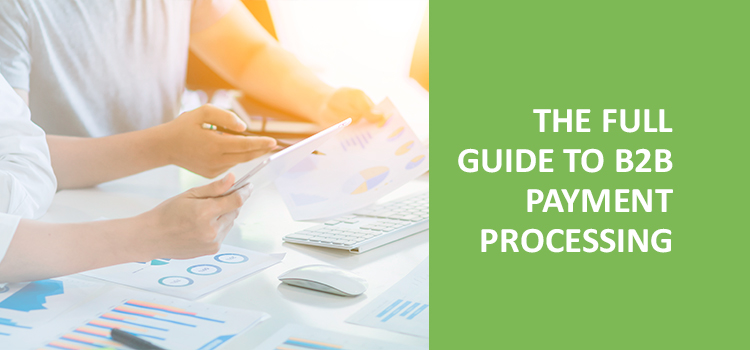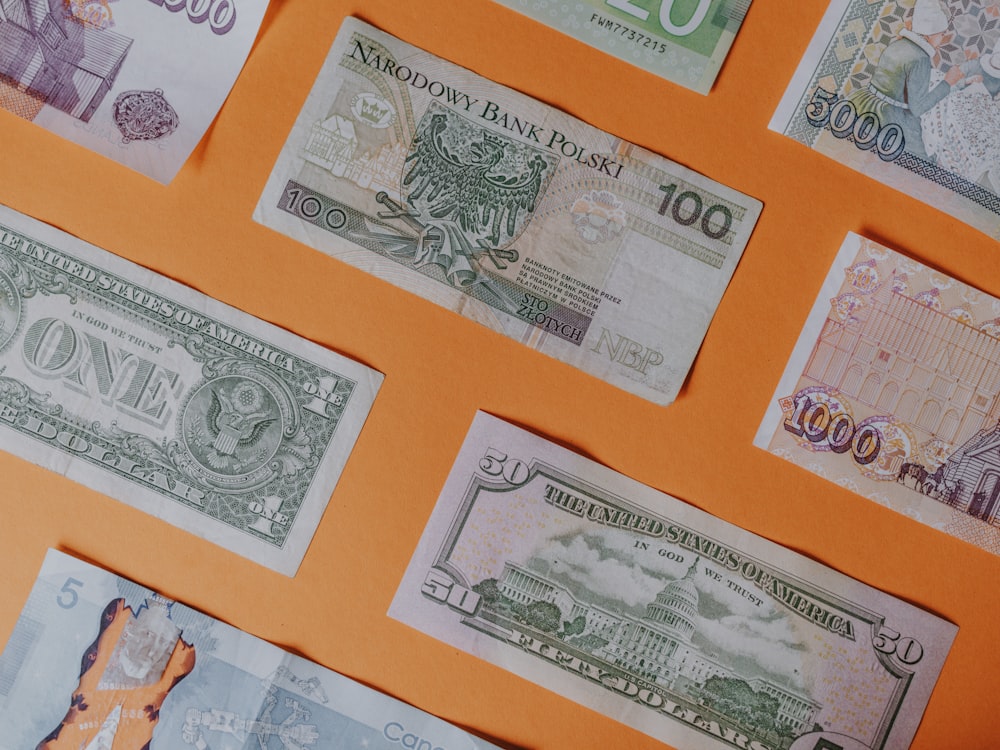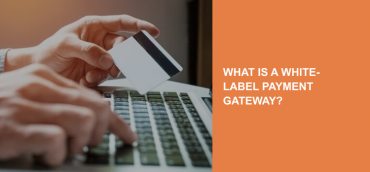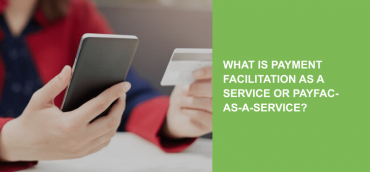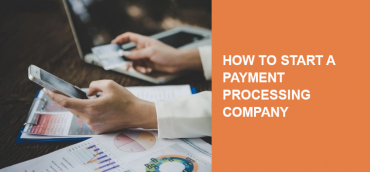B2B payment processing seems confusing at first. What payment gateway to choose? What payment methods to pick? How to prevent chargebacks and enhance a customer’s experience? Finally, how much will it all cost? In this article, we cast the light on the B2B payment landscape and layout everything one needs to know for successful B2B payment processing.
The payment gateway for B2B payment processing
Choosing a payment gateway always comes first. A plethora of advertisements on the web doesn’t make it any easier. However, there are some tips to consider to simplify the selection process:
-
Opt for local
First, it is usually better to opt for local options. Just like buying fruit from locals is always cheaper than purchasing exotic ones, selecting your country’s bank/ PSP to open a merchant account saves you extra. Local acquiring banks are more beneficial than those based overseas when it comes to transaction fees. It is especially true for those who aim to sell B2B products/services inside their home country.
Those odds might change if you plan to sell globally. In that case, you benefit from the PSP that supports a wide range of countries. That is why merchants from E.U. sometimes choose Eastern European or Asian acquiring banks. Another case when choosing an overseas company is more profitable than opting for local is when your country legislation prohibits your industry.
For example, selling CBD oil is legal in a limited range of countries only. If you manufacture CBD oil for your B2B goals, you need to reach out to the PSP/acquiring bank in the CBD-positive areas. Otherwise, you risk getting in trouble with the law. To understand what bank fits your B2B business goals best, fill in the short application to get a free consultation from our payment experts.
-
List your preferred payment methods
The other point to consider when looking for a payment gateway is your preferred payment methods. Make sure that the payment gateway of your choice supports significant credit card networks, e-checks, and electronic wire transfer. These are the most popular payment methods for B2B payment processing. Scroll down to see the full list with detailed descriptions below. Once again, there are some pitfalls you don’t want to miss.
Though Visa and MasterCard are leading in the niche, there are other credit card networks to consider. That is a must for B2B merchants willing to penetrate the global market or any specific region in particular. Chinese companies, for example, prefer WeChat to Visa, while Latin American businesses run their transactions via LatAm.
-
Look for experts in your field
Your industry type matters. That is so as some PSPs specialize in casino and gambling while others focus on SaaS marketing or travel. Such a distinction affects payment solutions those PSPs offer. Once hunting for your perfect fit, ensure that a company of your choice has substantial experience in your niche. That will minimize the possible financial risks in the future. The deal is, some B2B industries suffer from severe chargebacks. They have no choice but to choose PSP that is skilled enough to protect the company’s financial health.
-
Choose nothing less but 100% secure
We’re are now slowly moving to security. Last but not least, it defines your entity’s success. Any trustable PSP always holds PCI DSS certificate. Do not hesitate to ask is the PSP of your choice has any. PCI DSS certificate ensures that both yours and your client’s financial information if 100% secure. Being PCI DSS compliant also eliminates the possibility of fraud and chargebacks in the future.
-
Don’t let chargebacks ruin your business
Speaking about chargebacks, you want to be on the lookout. From a $25 000 fine to a damaged processing history to closure of your merchant account, chargebacks are dangerous. Some of us believe that they only happen in the B2C segment. However, it is not entirely right. If you run a high-risk B2B project, chargebacks are inevitable. And it is OK. You can do nothing but make sure to choose a trusted payment gateway with a high-end chargeback prevention software. We also recommend thinking of using a credit card authorization hold. That is a real gem for those B2B merchants who deal with a high average check amount.
The most popular payment methods for B2B payment processing
Now let’s proceed to the most popular payment options for B2B payment processing:
- Paper check
- ACH (Automated Clearing House)
- Electronic wire transfer
- Credit cards
Check up the list to take the first glimpse at these payment methods:
-
Paper Check
Being in use for nearly 300 years, paper checks are the oldest item on today’s list. Unlike other payment options, they haven’t evolved much. According to The Accounts Payable Network, the average cost to process (authorize, print, and mail) paper check is $5.14. Such a price debunks a myth about the inexpensiveness of paper checks. Besides, accepting and sending paper checks is very slow if comparing to a credit card or ACH payment processing. Another disadvantage of paper checks is that they are only available for U.S. citizens.
One of the key advantages of electronic payments over paper check payments is the latency factor. Simply put, electronic payment methods better clarify the status of payments throughout their delivery and execution.
-
ACH (Automated clearing house)
ACH, also known as an automated clearing house, is an electronic network for financial transactions. The ACH network was founded in 1974 and is governed by NACHA and U.S. Federal Reserve. The primary purpose of ACH is processing electronic checks. The fundamental principles behind e-checks and paper checks are the same. The core difference is that e-checks are created, verified, and processed digitally. The average cost to process an ACH transaction per the Association of Financial Professionals is $0.56 (between internal and external costs).
-
Electronic wire transfer
Western Union founded the electronic wire transfer in 1872 on its telegraph network. The payment method is known for its immediacy and security. The core principle behind electronic wire transfer is a direct bank to bank transfer. The average cost to process an EFT/wire payment is $14.42 again per the same AFP report.
A domestic outgoing wire transfer is $27.50. The average wire transfer fee for an international incoming wire transfer is $18.00, while an international outgoing wire transfer is $47.50. Receiving a wire transfer is free. However, some banks and credit unions charge small fees to receive funds by wire.
-
Remittance system transfer
Businesses with a high average ticket amount also benefit from using SWIFT and SEPA remittance systems. They are the types of wire transfers. SWIFT is a global remittance system that is regulated by American Financial Services. It mostly processes dollars and is only available for the U.S. merchants.
SEPA is a European remittance system. It only bolsters euro transfers what makes it unfavorable for American-based companies. American Financial Services do not regulate it. That provides SEPA users with more flexibility and financial freedom. The payment processing fees of SEPA are always high. They usually start from $80 per transaction. Such a fee might seem imprudent. Especially when you have just read about a $0.56 electronic check fee. Well, don’t rush. SEPA is much more beneficial than credit cards for merchants who can’t use ACH. And all of those outside the U.S. can’t.
Imagine a European B2B merchant who manufactures hardware and machinery for factories. The price of one item can easily exceed $50 000. If the client (factory) uses a credit card to pay for a product, the merchant will face a very high commission. The average cost of credit card transactions is about 3%. Thus, a merchant will have to give up to $1 500, so just to accept the payment. Thanks to a SEPA, he will only pay about 100 euros and save the rest.
-
Credit cards
These are physical credit cards that allow a business to transact and pay via existing credit networks. For example, Mastercard, Visa, or American Express. The average cost to process a credit card transaction is nil from an internal (payer) standpoint but anywhere from 2-3.5% of the transaction, which is incurred by the payee. Keep in mind that credit card transactions over $20 000 raise concerns among banks and legislative organs. That is another argument for using ACH and wire-transfers for B2B payment processing. For those B2B merchants who sell inexpensive products/services, for example, office supplies, credit cards fit well.
Summary
GEO, preferable payment methods, security standards, and expertise are the key factors to consider when choosing a payment gateway for B2B. Paper checks, electronic checks, wire transfer, and a credit card are the most popular payment methods for B2B.
It costs $5.14 to process, cut, and mail a paper check. Though traditional and wide-spread it the U.S., the paper check is soon to leave a payment party. The high commission and slowness are to blame. Electronic checks, on the contrary, are rising to prominence. It costs $.50 per ACH payment factoring internal and external charges. The only disadvantage of an electronic check is its limited accessibility (the U.S. only).
Wire transfers, including SWIFT and SEPA, are the leaders for B2B payment processing. A high but stable fee makes them very appealing to merchants dealing with a high average check amount ($1 000 and more). Credit card payment processing is quite a choice for those B2B entrepreneurs who market products/services with a low average check amount.
